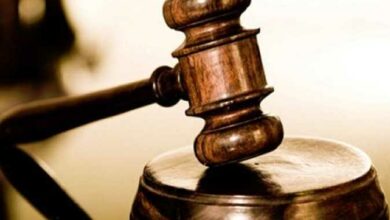“The district of Beba and the battle for revenge between the NDP and the Outlawed,” reads a headline on state-run Al-Ahram’s elections page. The headline captures the tense mood of this year’s parliamentary elections as the ruling National Democratic Party (NDP) intensifies its struggle against the “outlawed” Muslim Brotherhood. Al-Ahram’s report refers to the increasingly contentious struggle over the Beba district of Upper Egypt’s Beni Suef Governorate, where the NDP is determined to regain its “dignity” after it lost two seats–one to the Karama Party the other to the Brotherhood–in the 2005 parliamentary elections.
Competing over the workers’ seat–currently occupied by the Brotherhood representative Abdul Latif Kub–are former Shura Council member Farahat Ibrahim, dean of the investments center, Mohamed Saleh, former member of parliament, Ali Abbas Abu Zeid, and Ali Adli Hemida, who decided to run in his brother’s place (Radwan Adli Hemida ran in the 2005 elections).
Shedding further light on the heated Brotherhood-NDP battle, privately-owned Al-Shorouk dedicates half of its elections page to a report on a “war in the NDP” produced by the Brotherhood's surprising decision to eliminate five of its current members of parliament from the 2010 race. Excluded candidates include Ahmed Abu Baraka of the Beheira district of Kom Hamada. The Muslim Brotherhood has also removed Brotherhood Shura Council member Gamal Heshmat, a member of the 2000-2005 parliament.
The report also highlights competition between 11 NDP members over Abu Baraka’s seat in Kom Hamada. Ali Mohamed–whose candidacy aspirations raise some questions given that his father was elected twice on Brotherhood lists in the 1980s–is among the members vying for the seat. Mohamed claims he has been an NDP member since 1990 and denies that his father was a member of the Brotherhood, according to another report by Al-Shorouk. Mohamed explained that his father was elected on the Wafd list in 1984 and was on the Brotherhood list in 1987, due to the Wafd-MB alliance that year.
The reasons for Abu Baraka’s exclusion appear unclear in Al-Shorouk’s report. While Abu Baraka said he asked to be excused from this year’s race to attend to his work on the Brotherhood’s legal committee, sources within the Muslim Brotherhood in Kom Hamada said his exclusion was a response to an SMS campaign by young Brotherhood members who oppose his candidacy.
State-run Al-Gomhorriya also reports the NDP “workers” candidate in Tanta, Mohammed Oreibi, has been called “the defeater of the Outlawed,” as polls show that he is ahead of all other candidates, including the Brotherhood's current member of parliament Sayyed Askar. The seat will go to the NDP, says the report.
In related news, the Brotherhood is facing a tough time in Shubra al-Kheima, in the Kalyoubia Governorate north of Cairo, where districts have become hotly contested due to the increase in the number of candidates, the diminished popularity of Muslim Brotherhood candidates, and the increased popularity of Gamal Zahran–an independent candidate, according to a report on privately-owned Al-Wafd’s elections page.
The report describes a fast-paced attack against Muslim Brotherhood representatives in Shubra’s first and second districts amid accusations from other candidates that Muslim Brotherhood representatives have provided no services to their constituencies since their election in 2005. Some residents claim they voted for the Brotherhood because they were hoping for reform and change, but that services in their districts have not improved as their representatives have been busy with media appearances.
The NDP-Brotherhood 2010 electoral battle is taking place at a time of significant division within the Muslim Brotherhood as well. Privately-owned Al-Dostour reports on its front page that the last few days have witnessed an escalation of the conflict between those who signed a statement calling for boycotting the elections and Muslim Brotherhood media spokesperson Hamdi Hassan. As a result, Khaled Daoud–a member of the boycott group–filed a formal complaint to the District Attorney, accusing Hassan of trying to cast doubt on his financial integrity.
According to the report, the Muslim Brotherhood Guidance Bureau tried to contain the conflict during its meeting on Monday, and former supreme guide Mahdi Akef–who attended the meeting–has tried to intervene to resolve the conflict. Members of the Guidance Bureau were internally divided however over Akef’s offer: Sources within the organization told Al-Dostour that the offer was rejected and that Akef was trying to use the situation to play the role of “parallel supreme guide”–a position that both current supreme guide Mohammed Badie did not allow him to play.
In other news, Al-Wafd dedicates almost one quarter of its elections page to a report on government ministers’ abuse of power for electoral purposes, despite regime statements regarding an equal playing field for all candidates. According to the report, Minister of Water Resources and Irrigation was able to convince Minister of Education Ahmed Zaki Badr to waive tuition for 3000 students in Gohayna, Sohag.
Mahmoud al-Sakka writes an opinion piece in Al-Wafd in which he calls on the Egyptian public, who have a great deal of love for President Hosni Mubarak, to sit down with the president and demand guarantees for electoral integrity. In “simply an observation” in Al-Ahram, Sameh Metwalli critiques the fact that electoral candidates are spending millions to finance their campaigns, despite the LE200,000 ceiling set by the electoral commission.
Finally, President Hosni Mubarak has issued a presidential decision to amend some articles of the political rights law. The most important amendments include the creation of districts solely for candidates vying for female quota seats, and the establishment of separate ballots and ballot boxes for those seats.
Egypt's papers:
Al-Ahram: Daily, state-run, largest distribution in Egypt
Al-Akhbar: Daily, state-run, second to Al-Ahram in institutional size
Al-Gomhorriya: Daily, state-run
Rose al-Youssef: Daily, state-run, close to the National Democratic Party's Policies Secretariat
Al-Dostour: Daily, privately owned
Al-Shorouk: Daily, privately owned
Al-Wafd: Daily, published by the liberal Wafd Party
Al-Arabi: Weekly, published by the Arab Nasserist party
Youm7: Weekly, privately owned
Sawt al-Umma: Weekly, privately owned




